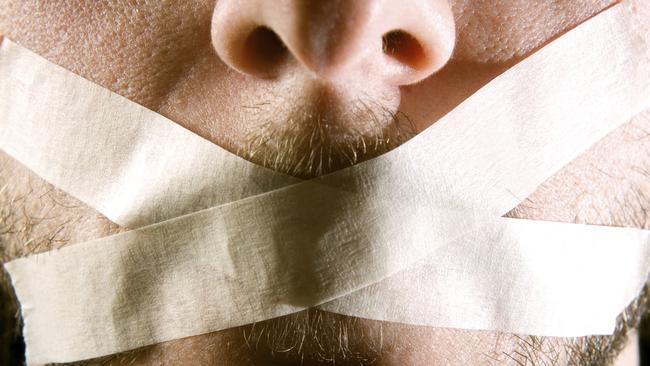SA court suppression legislation ‘futile, ineffective’ in face of social media, experts say
SUPPRESSION orders are ineffective and futile in a digital world, and only increase the risk of rumour, gossip and misinformation corrupting public discussion, experts warn.

SA News
Don't miss out on the headlines from SA News. Followed categories will be added to My News.
SUPPRESSION orders are ineffective and futile in a digital world, and only increase the risk of rumour, gossip and misinformation corrupting public discussion, experts warn.
Victims’ Rights Commissioner Michael O’Connell and Curtin University Professor Joseph Fernandez yesterday said courts could no longer govern the flow of public information.
Professor Curtin said judges and governments should reconsider the “merit and value” of imposing bans that did not restrict social media or “viral” online discussions.
“The issue that has reared its ugly head and cannot be ignored is the futility of suppression orders in a digital world,” he said.
“They are totally incapable of dealing with all non-traditional forms of publication — anything outside of newspapers, radio and television — and especially social media.
“At a time when rumour, gossip and incorrect information goes viral, we should be asking ourselves what really is the point.”
Under state law, suppression orders are enforced only upon mainstream media outlets whose publications — be they physical or electronic — appear within SA’s borders.
Media outlets that are part of larger, national companies ensure their products meet the requirements of orders imposed in all states, especially website content.
SA media has obscured the identities of offenders including Adrian Bayley, who murdered Jill Meagher in Melbourne, and Brett Cowan, charged over Daniel Morcombe’s abduction in Queensland.
Mr O’Connell said no such restriction applied to social media, bloggers or so-called “citizen journalists”.
“E-communications such as social media know no borders, so online forums freely discuss matter that is prohibited in mainstream media,” he said.
“A search on Google, Yahoo or other search engine might reveal literally hundreds of stories, images and so on readily available online, including Facebook posts and Twitter tweets.”
Such an incident occurred in November 2010, when Jason Alexander Downie murdered Andrew, Rose and Chantelle Rowe at Kapunda.
Though the mainstream media was banned from identifying Downie, his name and image were freely available on multiple websites, including global encyclopaedic site Wikipedia.
Professor Fernandez said that, by restricting professional reporting without curbing viral media, the courts were themselves creating prejudice to the administration of justice.
“There is no guarantee that the information you get through social media is accurate,” he said.
“There are no obligations upon nor standards for internet reporting as there is for the mainstream media.
“The mainstream media suffers the scourge of visibility and becomes an easy target for judges seeking to ‘send a message’ ... professional reporters are sitting ducks.”
He said a better approach was for Parliament to revisit the legislation “forensically” while the courts and the media engaged in open discourse.
“A responsible media outlet’s objectives are entirely consistent with those of a court, that is the open and transparent administration of justice,” he said.
“How can one possibly conduct an open and transparent system when you curtail the media?”


